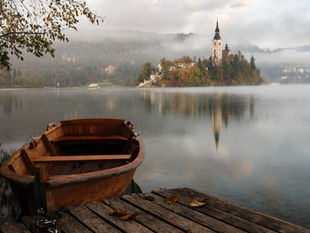
What is Fantasy?
Put simply, fantasy is exploring or discovering our shared liminality.

A Bulgarian-French historian named Tzvetan Todorov (1939-2017) famously claimed that the ‘fantastic is a liminal space within the architecture of life.’
Fantasy is a state of transition, a pivotal moment, a threshold, a liminal space.
In simple terms, liminality describes those life moments where things become unclear or they seem to be breaking down. Todorov described these curious moments as ‘liminal periods’ (or thresholds if you like). Though rare, these experiences are universal to humankind.
We all discover, in these rare liminal moments —often during rites of passage—that our usual understanding of time becomes flexible or it shifts in unexpected ways. Such a malleable sense of time renders our perceived truths unreliable.
Fantasy’s defining characteristic is its creation of this sense of fluid, formless time: fantasy creatives deliver a state of liminality.
Portals are crucial in fantasy stories because they let the characters, like the children in Narnia who pass through the back of a wardrobe, travel from an ordinary world and into a magical realm. Harry Potter catches the Hogwarts Express from Platform Nine and Three-Quarters, to enter his ‘magical world.’ Bilbo Baggins and, after him, Frodo, leave the Shire to begin their magical adventures at a liminal moment (their joint birthdays.)
Even immersing oneself in a good book or a watching a film (or playing an game) offers a temporary trip into this metaphysical realm. Yes, the simple acts of reading, viewing, or playing create temporary breaks in our understanding of the passage of time. How frequently do we exclaim, ‘Good grief, is that the time?’ after reading in bed too long or playing on our games console? Or, how many times have we exited a cinema, squinting in the sunlit, to exclaim how 'bright and ordinary’ everything seems?
Main image: Robert Lukeman
NOTES:





